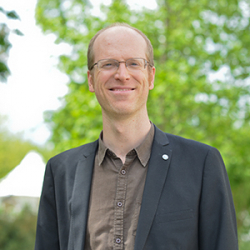Koen Vermeir
Immediate Past Co-Chair, Global Young Academy

Koen Vermeir is an Associate Research Professor (CR1) at the French National Centre for Scientific Research (CNRS). After graduate studies in theoretical physics, in philosophy and in history of science, in Leuven, Utrecht and Cambridge, he has held research positions at the Fund of Scientific Research-Flanders, the Max-Planck-Institute for the History of Science, Harvard University, and Harvard’s Radcliffe Institute for Advanced Studies. Vermeir was also visiting fellow at Cambridge and Cornell Universities, and visiting professor at the ETH Zürich. Vermeir is specialized in the history and philosophy of science and technology, with a special interest in the interconnection between science, technology and religion. He has studied, for instance, how religious and magical thought have contributed to the rise of experimental science and he has reflected on the consequences for our notions of rationality and modernity. Science and imagination are closely related, especially when scientists have tried to understand strange, incredible or even seemingly impossible events. Such contested work at the borders of the unknown also inspires doubt, however (psychosomatic phenomena and human-induced climate change would be historical and contemporary examples), raising the urgency of boundary work. Vermeir has studied how the credibility of science is sustained and how the sciences can be insulated from suspect phenomena or practices. Vermeir is committed to show the significance of the history and philosophy of science for the sciences as well as for the public perception of science. He has studied aspects of the early institutionalization of science and the science/society interface. Closely related to interests of the GYA, Vermeir has analyzed alternative models for understanding the organization of knowledge (science as a commodity vs. the scientific commons) and he has reflected on foundational questions related to the management of science.